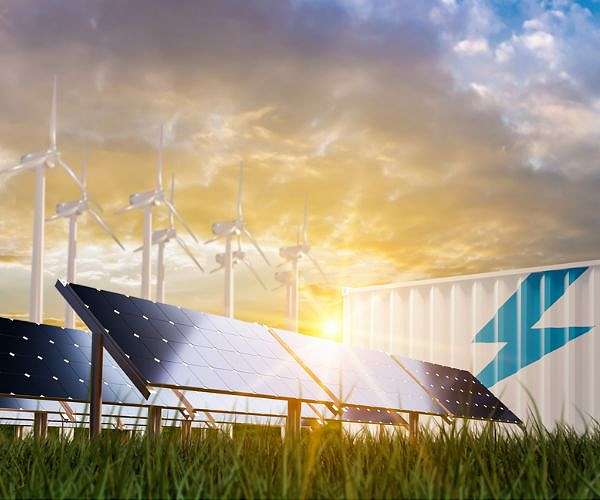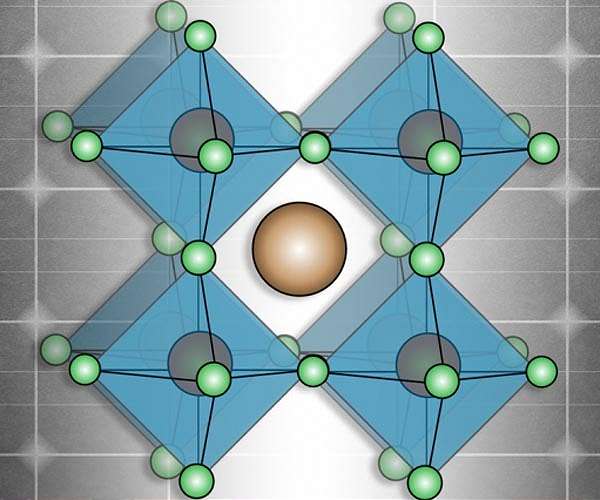Blazing sun days are feeding Europe’s grid with record amounts of solar energy – but the current heatwave is actually bad news for solar panels.
In Germany, a record amount of solar electricity was generated on Sunday, while most of the country was covered by the Excessive Heat Warning.
It is expected that even more solar energy will be generated in the coming days as Western Europe prepares for a heatwave many countries have never seen before.
And yet these record amounts of solar energy are far from what domestic solar panels could achieve if temperatures were slightly cooler.
While more of the energy generated by the sun can be seen as the silver lining of what is likely to be a “killer” heatwave, the heat actually impedes solar panels from working.
Contrary to intuition, warmer and sunnier days don’t mean more power, as rising temperatures actually limit the ability of solar panels to store energy.
How does it work?
Solar panels absorb sunlight through their photovoltaic cells, with the photons absorbed by the panels knock out electrons from their atoms and create an electrical circuit in the panel’s semiconductors, generating a flow of electricity. This may interest you : San diego gas and electric solar program.
Most solar panels are tested at 25 degrees Celsius, the ideal temperature for this process to occur in solar panels under optimal conditions.
But above this temperature, no matter how bright the sun is shining, the performance of the panels begins to decline.
The heat excites an excessive number of panel electrons – the ones responsible for converting solar energy into electricity – which ultimately reduces the voltage generated by the panel and its efficiency.
The impact is not minimal. According to data from CED Greentech, high temperatures can reduce the efficiency of solar panels by 10 to 25 percent.
According to Solar.com, for every degree Celsius higher a solar panel senses, its efficiency drops by 0.5 percentage points.
Heatwave in Europe
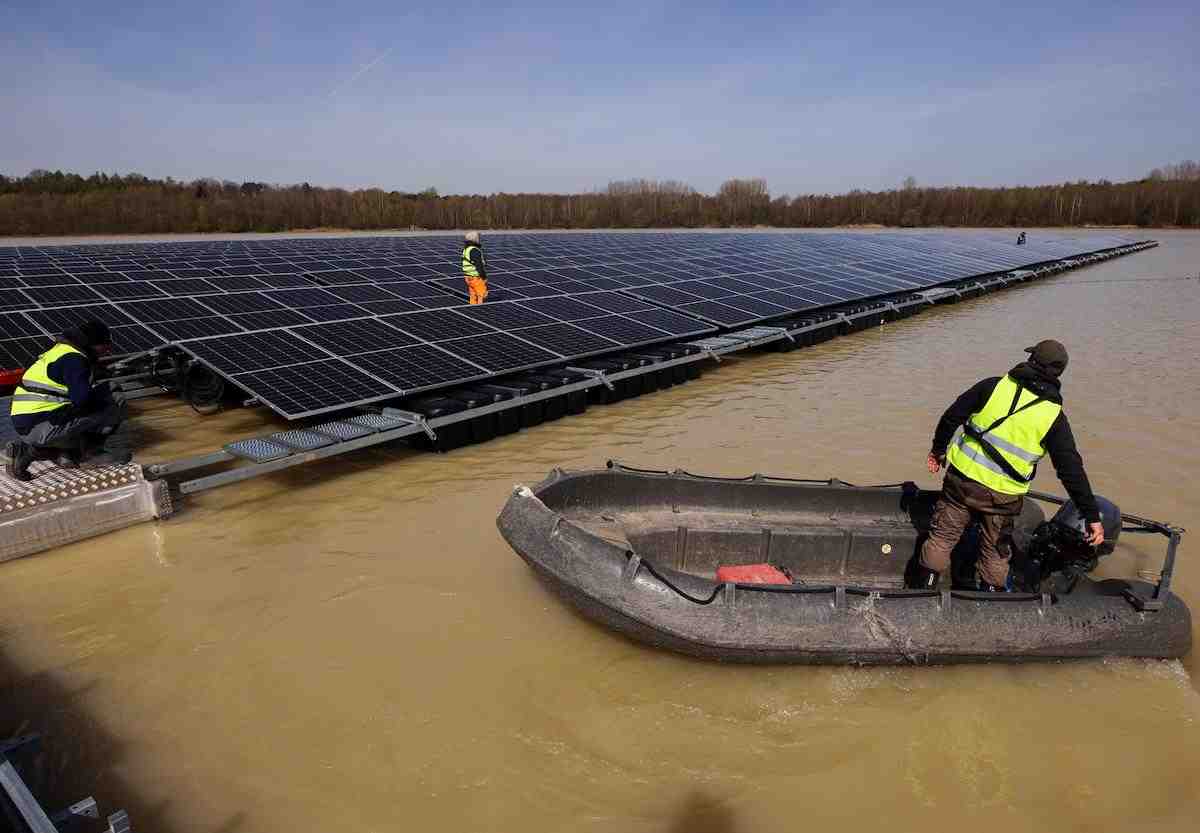
In Western Europe, temperatures are expected to exceed 40 degrees Celsius. On the same subject : Solar turbines san diego ca 92101.
Unprecedented temperatures are expected in Britain, a country where most homes do not have air conditioning installed. In much of southern Europe, firefighters are already battling raging heat-induced fires.
Of course, there are also thermal solar panels that would not be affected by increased heat. But these are much rarer panels, especially in homes, and are considered less reliable at producing electricity.
As temperatures continue to rise in the western part of the continent, it is not certain that the coming sunny days will bring more record amounts of solar energy.
Even though people turn to air conditioning to stay cool, the demand for electricity is rising, renewable solar energy may not be the answer to meeting it.
Do solar inverters give off radiation?
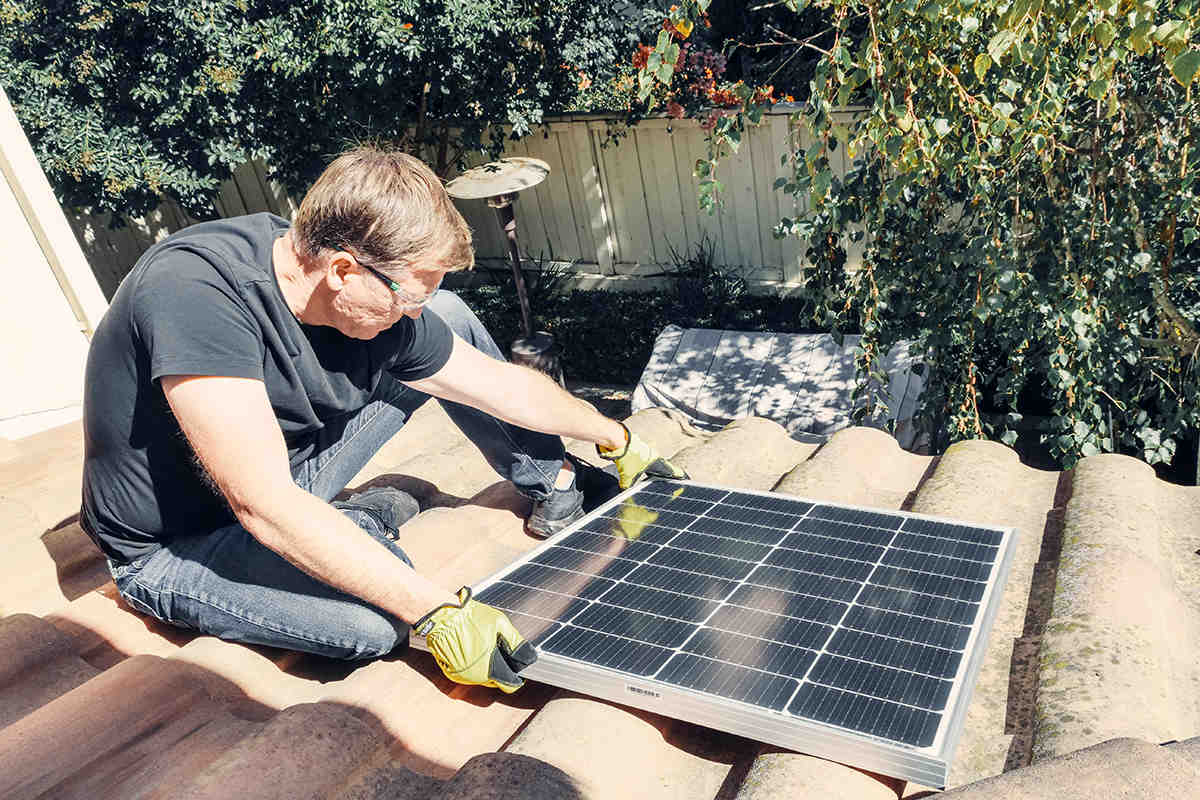
Solar inverters emit both radio interference and electromagnetic radiation.
Is the solar power inverter safe? No, the inverters are not harmful to our health and are compliant with FCC Part 15 Class B regulations which regulate the emitted electronic devices called “radiant” energy.
How much radiation do solar panels emit?
Solar panels themselves do not emit radiation; and if so, they only produce a very small amount. As long as you practice 2 of the 3 principles of EMF protection – distance and duration – you should be fine.
Do solar panels emit EMF at night?
So, can electromagnetic fields or radiation from the solar system on the roof harm you or your family? Usually these types of questions have two answers – a short and a long one. But today I am going to give you two short answers and then one long answer. Short answer 1: Not at night.
Are solar panels cancerous?
Myth 1: Solar energy causes cancer Fact: Solar energy does not cause cancer. It also does not interfere with photosynthesis. Individual solar panels can block some of the sun from reaching the ground, but you can allow enough space between them to let the sun shine through if needed.
Do solar panels become toxic?
CDTe solar panels can be dangerous due to cadmium. Gallium arsenide (GaAs) panels can be dangerous due to arsenic. Some older silicon solar panels may be waste hazardous to hexavalent chromium coatings. Newer, thin-film solar panels contain CIS / CIGS and can be dangerous due to copper and / or selenium.
Do solar batteries give off radiation?
Although solar panels emit EMF radiation, it is quite small and probably not dangerous. The real problem is that the solar panel system or photovoltaic system produces dirty electricity that ultimately emits EMF into your home.
Do solar panels emit EMF at night?
So, can electromagnetic fields or radiation from the solar system on the roof harm you or your family? Usually these types of questions have two answers – a short and a long one. But today I am going to give you two short answers and then one long answer. Short answer 1: Not at night.
Are solar batteries toxic?
CDTe solar panels can be dangerous due to cadmium. Gallium arsenide (GaAs) panels can be dangerous due to arsenic. Some older silicon solar panels may be waste hazardous to hexavalent chromium coatings. Newer, thin-film solar panels contain CIS / CIGS and can be dangerous due to copper and / or selenium.
Do solar batteries emit radiation?
Electricity from solar panels and transmission to the power grid emits extremely weak electromagnetic fields. According to the World Health Organization (WHO), exposure to low-level electromagnetic fields has been extensively researched and there is no evidence that it is harmful to human health.
Why you shouldn’t put solar panels on your roof?
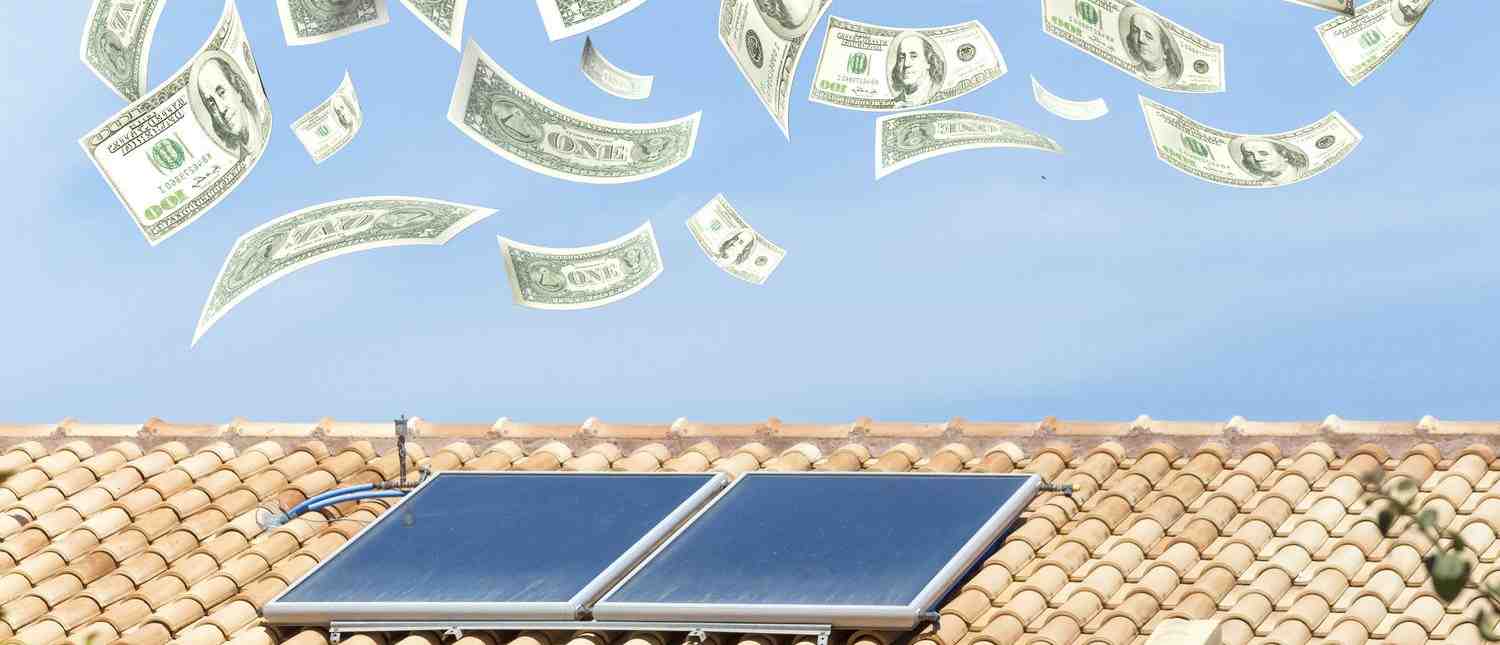
Your roof is too small: Solar panels need sunlight to generate electricity. The more sunlight they absorb, the more energy they generate. If you have a small roof, you may find that the solar panels simply won’t generate enough kilowatt hours to make a real difference to your bills.
What are the advantages and disadvantages of having solar panels on the roof? Consider these five advantages and five disadvantages of solar energy.
- Advantage: return on investment. …
- Disadvantage: Panels cost the main coin. …
- Pro: counteract rising media prices. …
- Disadvantage: Not suitable for everyone. …
- Advantage: renewable, clean, efficient energy. …
- Disadvantage: Solar Roof Installers. …
- Pro: Added home value and curb appeal. …
- Disadvantage: Weather dependent.
Is it worth putting solar on your roof?
Summary A solar energy system is not suitable for every homeowner. However, if your home has the right location, roofing, and tax benefits, and your energy bills are high, you can generate significant savings with solar energy.
Is solar power a waste of money?
If you live in an area with high energy rates and adequate sunshine and can afford the initial investment, it makes sense to install solar panels in your home when there is a 26% tax credit – for the sake of the environment and your wallet. But don’t expect to eliminate your electricity bill overnight.
Are solar panels on a house really worth it?
Yes! One of the most important benefits of switching to solar energy is increasing the value of your home panels. Zillow estimates that the value of your home will increase by about 4.1 percent when you switch to solar, an average of $ 31,093 in California value.
Why solar panels are not worth it?
# 1 Economics Not Right For You High start-up costs for your solar energy system. This is usually because solar equipment and / or installation costs are expensive where you live. Space constraints mean that a large enough solar panel system cannot be installed to ensure adequate savings on your electricity bills.
What is the downside to solar panels?
There are downsides to installing solar energy such as high initial costs, they require a lot of space and you cannot take them with you if you decide to move. Overall, installing solar panels is a great investment for homeowners.
What are the two main disadvantage of solar energy?
The two main disadvantages of solar energy are its dependence on weather conditions and the inability to store electricity. Solar energy production depends mainly on direct sunlight. A cloudy day can reduce electricity generation by more than 80%.
What are 5 Advantages and disadvantages of solar?
Solar energy is pollution-free and produces no greenhouse gas emissions after installation. Reduced dependence on foreign oil and fossil fuels. The clean renewable energy that is available every day of the year, even on cloudy days, produces some energy. Return on investment as opposed to paying utility bills.
Can solar panels ruin your roof?
The biggest worry for homeowners with solar panels on their roofs is the potential damage they can do to their roofs. Improperly installed solar panels can increase the risk of water leakage and fire as well as weaken the roof structure and its resistance to the elements and appropriate weight.
Do solar panels weaken your roof?
Solar panels do not damage the roof when properly installed For most homeowners, installing solar panels will not damage the roof, as long as the installer is a licensed, qualified professional and the roof is in good condition.
Do solar panels ruin shingles?
No wonder holes in the roof can lead to leaks over time. In the presence of unexpected moisture, the possibility of water damage and mold growth becomes very real. Therefore, damage to shingles and roof tiles caused by drilling or hammering when installing solar panels is almost guaranteed.
Can solar panels be damaged by heat?

Overheating of photovoltaic solar panels Therefore, a standard solar panel produces 80% of the heat for just 20% of the electricity produced. Therefore, overheating is not so much a risk as a defect of the solar panel.
What happens if the solar panels get too hot? As the temperature of the solar panel increases, its output current increases exponentially while the output voltage decreases linearly. In fact, the voltage reduction is so predictable that it can be used to accurately measure temperature. As a result, heat can seriously reduce the energy production of the solar panel.
At what temperature do solar panels lose efficiency?
Most solar panels perform optimally in the laboratory at a Standard Test Condition (STC) temperature of 77 ° F. Their efficiency drops significantly when they reach 149 ° F.
How does the temperature of a solar cell affect its efficiency?
For example, a solar panel has a temperature coefficient of -0.258% per degree Celsius. Thus, for each degree increase, the maximum power of the solar panel will decrease by 0.258%, and for each degree decrease, it will increase by the same percentage.
What temperature can solar panels withstand?
Most solar panels have a “maximum solar panel temperature” rating of 185 degrees Fahrenheit – which seems intense. However, solar panels are hotter than the surrounding air because they absorb the sun’s heat, and because they are built to last, high temperatures do not degrade them.
How hot is too hot for solar panels?
Domestic solar panels are tested at 25 ° C (77 ° F) and therefore the temperature of the solar panels will generally range from 15 ° C to 35 ° C during which the solar cells will produce at maximum efficiency. However, solar panels can heat up to 65 ° C (149 ° F), at which point the performance of the solar cells will be impaired.
Can it be too hot for solar panels?
Although solar panels use sunlight to produce energy, they do not require heat in any way. In fact, solar panels can run about 10 to 25 percent less efficiently on warm, dry days, reaching temperatures of 90 degrees Fahrenheit or higher. The warmer the ambient air, the less efficient solar panels will be.
What is the maximum temperature a solar panel can withstand?
Most solar panels have a “maximum solar panel temperature” rating of 185 degrees Fahrenheit – which seems intense. However, solar panels are hotter than the surrounding air because they absorb the sun’s heat, and because they are built to last, high temperatures do not degrade them.
How much heat comes off of solar panels?
Yes, solar panels are hot to the touch. Overall, solar panels are 36 degrees Fahrenheit warmer than the temperature of the surrounding outside air. As the solar panels get warm, the working cell temperature rises and reduces the panels’ ability to generate electricity.
How much heat do solar panels give off? Solar panels are typically tested at around 77 ° F and are rated for peak performance between 59 ° F and 95 ° F. However, solar panels can heat up to 149 ° F during the summer. When the surface temperature of the solar panels is so high, the performance of the solar panel may drop slightly.
Does solar energy give off heat?
The panels are usually much darker than the substrate they cover, so the huge space of solar cells will absorb a lot of extra energy and emit it as heat, affecting the climate.
Do solar panels affect the atmosphere?
Naturally, solar panels produce no greenhouse gas emissions, but coal-fired power plants emit about 2 pounds of carbon dioxide for every kWh. This CO2 accumulates in the atmosphere and has a long warming effect.
Do solar panels heat the environment?
According to a systematic review, solar panels can heat the local urban environment. A systematic review of 116 articles on the effects of solar panels on the surrounding environment found that they can heat cities significantly during the day.
Does solar energy affect Earth’s climate?
The link between the sun and climate It has been suggested that changes in solar production can affect our climate – both directly, by changing the rate at which the sun warms up the Earth and the atmosphere, and indirectly, by changing cloud formation.
Do solar panels attract more heat?
Simply because of a lower albedo of solar panels than that of surrounding nature, the panel draws more energy from sunlight that could otherwise be reflected into space, solar panels would accelerate global warming.
Do solar panels trap heat?
It is light, not heat, that generates electricity – and too much heat can actually hamper the electricity generation process. High temperatures can reduce the efficiency of electricity production, so while a solar panel will absorb both light and heat, this is exactly what it needs.
Do solar panels cause more heat?
Although solar panels absorb heat much like a roof, the fact that they are lifted from the roof significantly changes the amount of infrared radiation (heat) that enters your home.


